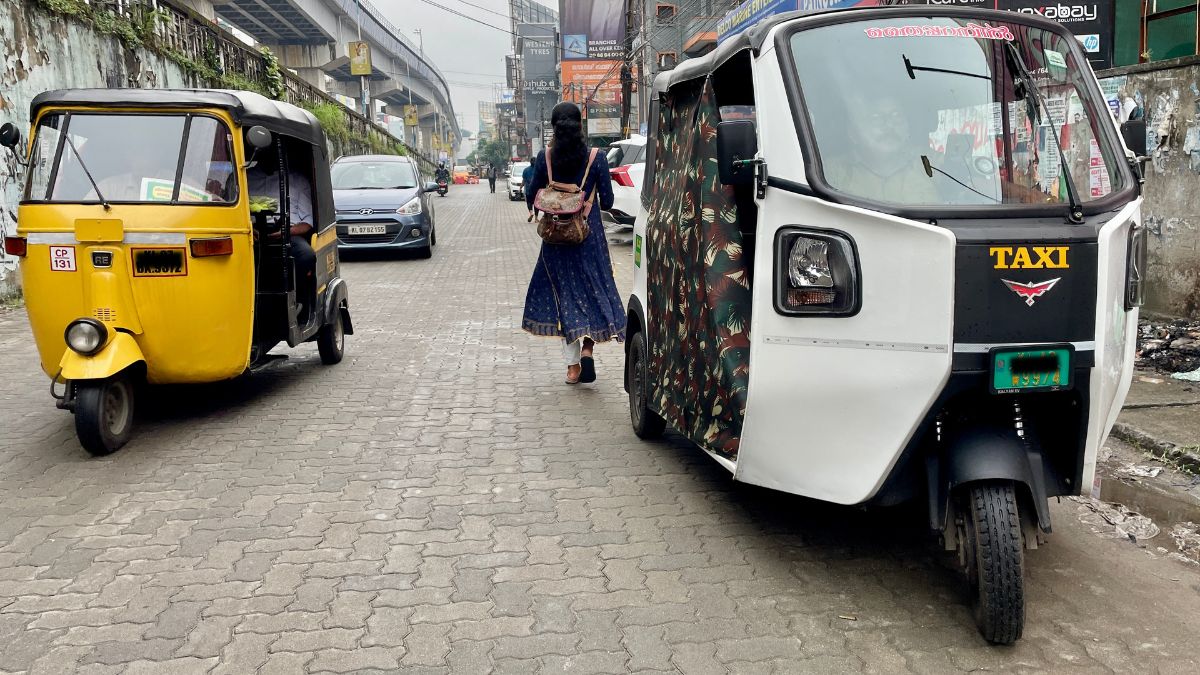Bengaluru auto fare hike: Everything you need to know about the price revision from August 1
 An ICE autorickshaw passes by a parked e-rickshaw (right) | Nitin SJ Asariparambil
An ICE autorickshaw passes by a parked e-rickshaw (right) | Nitin SJ Asariparambil
The autorickshaw fares in Bengaluru city limits will be hiked from August 1, with the base fare increasing from ₹30 to ₹36.
The fares were revised after four years (with the last revision in November 2021) though the auto drivers' unions had been demanding an annual revision owing to fuel price hikes, growing traffic jams, and inflation.
The autorickshaw federation welcomed the revision, though their demand was for ₹40 for the first 2 km, and ₹20 for each additional kilometre.
ALSO READ | 'Disciplined operation': Uber ramps up India services despite bike taxi bans, regulatory hurdles
As per the revised fare notified by the Regional Transport Authority (RTA) of the Bengaluru Urban district on July 14, the charge per kilometre will increase to ₹18 from the previous ₹15, and a night surcharge of 50 per cent will be applied to the regular fare between 10 PM and 5 AM.
The waiting charge for the first five minutes is free, then will then be ₹10 for every 15 minutes of waiting time.
There will be no baggage charges up to 20kg, with ₹10 to be charged for every additional 20kg (maximum 50kg).
Every auto has to display the revised rates in the vehicle at a prominent place, recalibrate the meters to the revised fares within the next 90 days (ending October 31, 2025), and get them certified from the Legal Metrology department.
The hike has evoked mixed responses from commuters, who are feeling the pinch especially after the hike in Metro and BMTC bus fares earlier this year.
Also, the ban on bike taxis last month has deprived daily commuters of an affordable means of travel. Apart from the state government ban on them, bike taxis (Rapido, Ola and Uber) had also been opposed by autorickshaw unions (there are around 3.45 lakh registered autorickshaws plying in Bengaluru).
The absence of a shared auto culture in the city, surge pricing of cab aggregators, and poor feeder bus services has left them at the mercy of the auto drivers, say commuters. The passengers complain of the auto drivers being too choosy of the destinations or persistently refusing to ply by meter.
After the ban on bike taxis (which used to ply at ₹10 per km), the police cracked down on the unruly autorickshaw drivers.
Within a fortnight (between June 16 and July 1), the Bengaluru traffic police booked as many as 670 cases for refusing rides and another 676 cases for demanding extra fare, besides other traffic violations.
With altercations between the auto drivers and the passengers on the rise, netizens have urged transport officials and the traffic police to adopt a system to help commuters lodge complaints against unruly drivers in real-time.
Business